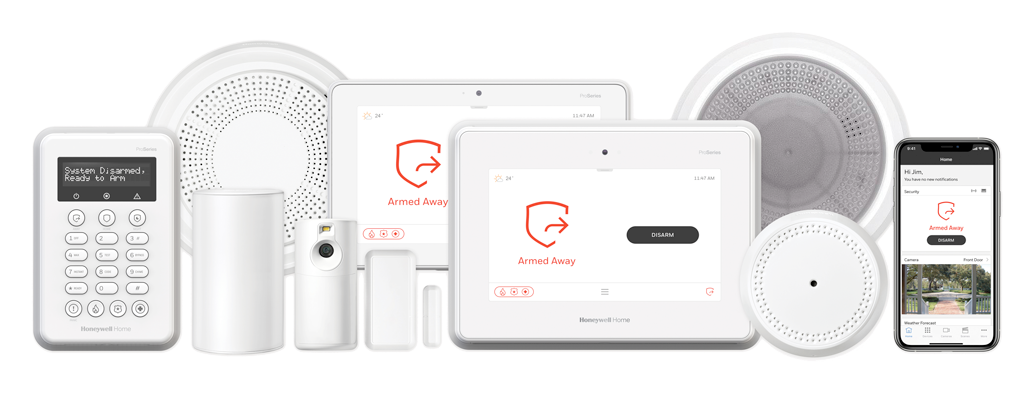The fact never changes that home security systems are important to have in your home. However, the choices you now get to make when choosing one can seem endless. Home security systems and their technology evolve daily. In fact, now that landlines are fading away, many home security companies are making their devices available as wireless. Is there a difference in which one you choose? Does it affect your service and reliability? Let’s look at these questions and more.
Wired Home Security Systems
When you have a hardwired system, it means that the central control panel connects directly to the multiple sensors through wiring in the house. These wires run inside the walls, floor, or ceiling. This wired security system is then connected to a monitoring station using your internet provider or cellular service. The security devices, such as a camera, use wires to connect to the control panel and a power source. If you are wiring a new house for a security system, the price includes mostly labor costs. This fact is especially true if you put wiring into an existing house. Running wiring in the walls requires drilling holes and repairing access points.
On a positive note, a hardwired system gives a reliable signal and is not prone to interference from other devices. They can lose power when there is an outage, but a battery backup covers it unless it is for a longer period. Also, having a traditional wired home security system doesn’t mean you can’t upgrade. Usually, it only requires minor adjustments to get it activated, such as an updated control panel.

Wireless Home Security Systems
The latest systems lean toward the wireless option. This is due to the fact that many homeowners want to add smart home devices to their home security systems. Hard-wired systems are not compatible with smart devices. They need that Wi-Fi connection and integration with the other devices. A wireless system includes the advantage of remote control with your smartphone when you are away from the house.
Another good point for having a wireless system is easily moving the cameras. Without the wiring keeping them in place, you can relocate a camera when needs change. Just plug it into the power source near the area you want to watch over. The same goes for when you move to a new place. A wireless system requires very little to uninstall and take with you.
The downside includes the possibility that your Wi-Fi signal drops or gets interference from other wireless devices. Some wireless systems use cellular service. This is similar to what your mobile device uses, and so the reliability is always there.
Conclusion
There are many reasons that different people choose different security solutions. It is up to you to determine which one protects you the best in your circumstances. Here is a brief summary to consider:
Wired Pros:
- Reliable signal without interference
- Consistent connection
- Already pre-wired, simple setup
- Uses your existing landline
Wired Cons:
- Needs professional installation for wiring
- Cut lines can disable system
- Not compatible with smart home devices
- Cannot take it with you if you move
Wireless Pros:
- Easy setup, no drilling to install wiring
- Flexible placement
- Stay connected with your smartphone
- Integrates with smart home devices
- No worrying about cut lines
- Battery backup
Wireless Cons:
- Possible signal drop
- Possible signal interference from other sources
To find out more, call us today at Core Home Security. We go over all your concerns and listen carefully to your expectations and needs. Then, the perfect home security system is put together for your home and family. We are a local company that works closely with you to find the best possible solution to keep you safe!






